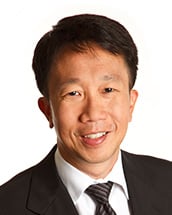In brief
The Singapore Association of Pharmaceutical Industries Code of Conduct (“SAPI Code“) has been amended to increase limits for providing hospitality in relation to food and drinks during events, and to clarify that company-branded, single-use, disposable tableware are permitted at third-party events.
The revisions are effective from 1 February 2024.
Key takeaways
- The amended Article 7.1.5 increases the limit, from SGD 120 to SGD 150, for providing hospitality in relation to food and drinks to healthcare professionals (HCPs) during events.
- Under the Frequently Asked Questions (FAQ) section, the SAPI Code now clarifies that single-use, disposable tableware may be company branded for use at company booths at third-party events. That said, product branding is not allowed.
In depth
The SAPI Code provides guidance for its member companies in the marketing and promotion of pharmaceutical products and serves as the basis for self-discipline in the pharmaceutical industry.
In particular, the SAPI Code provides standards to facilitate member companies’ interactions with HCPs, medical institutions, patient organizations (i.e., not-for-profit institutions that represent the interests and needs of patients, their families and/or caregivers). These standards ensure the ethical promotion of pharmaceutical products.
The SAPI Code is an industry code and does not strictly have force of law (i.e., non-compliance with the SAPI Code is not in itself a breach of local regulations). The SAPI Code is only drafted for member companies’ compliance. Nonetheless, the SAPI Code presents a set of industry-accepted best practices in relation to the marketing and promotion of therapeutic products, including pharmaceutical companies’ interactions with HCPs.
The latest version of the SAPI Code may be found here.
* * * * *

© 2024 Baker & McKenzie.Wong & Leow. All rights reserved. Baker & McKenzie.Wong & Leow is incorporated with limited liability and is a member firm of Baker & McKenzie International, a global law firm with member law firms around the world. In accordance with the common terminology used in professional service organizations, reference to a “principal” means a person who is a partner, or equivalent, in such a law firm. Similarly, reference to an “office” means an office of any such law firm. This may qualify as “Attorney Advertising” requiring notice in some jurisdictions. Prior results do not guarantee a similar outcome.





